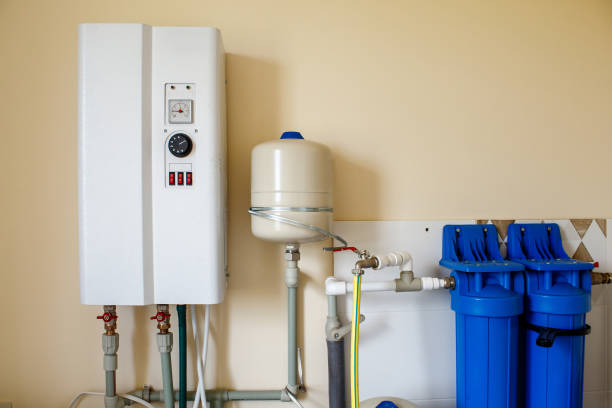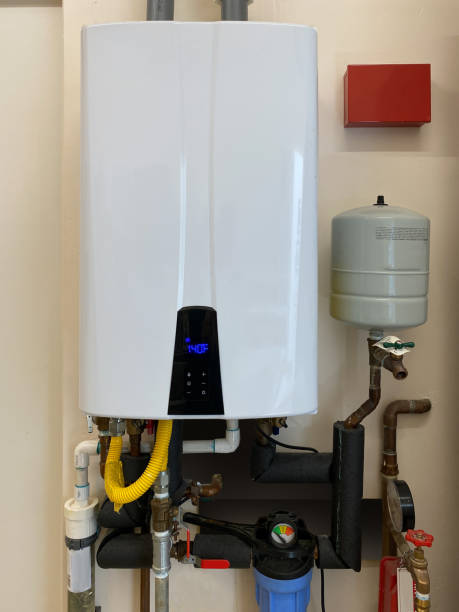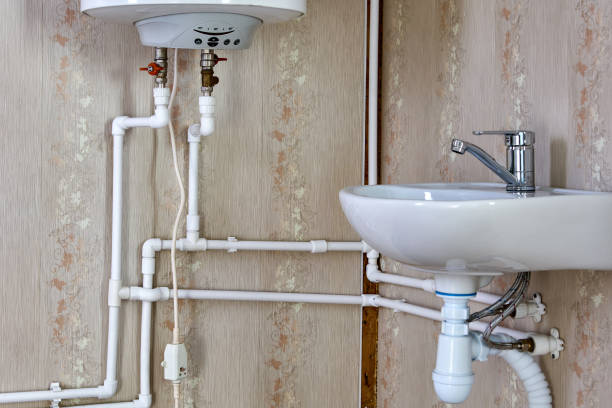When it comes to water heaters, the question of whether to keep them on all the time or only turn them on before use is one that many homeowners may have. In this article, we’ll take a look at the pros and cons of both options, so you can make an informed decision about how to use your water heater.
Keeping your water heater on all the time is the more traditional way of using it. This method is known as “continuous” or “constant” hot water, and it means that your water heater is always working to keep a certain amount of hot water in reserve, so it’s ready whenever you need it.

Benefits of keeping water heater on constant
Eliminates wait time for hot water
One of the main benefits of keeping your water heater on all the time is that it eliminates the wait time for hot water. With this method, hot water is always available, so you won’t have to wait for the water to heat up before you can use it.
This can be especially useful for households with multiple people, where there is often a competition for hot water in the morning.
Energy efficient
Another benefit of keeping your water heater on all the time is that it can be more energy-efficient. Because your water heater is always working to keep hot water in reserve, it doesn’t have to work as hard to heat up the water when you need it. This can result in lower energy bills over time.
Drawbacks of a water heater on constant
However, there are also some downsides to keeping your water heater on all the time. One of the main downsides is that it can be more expensive to run. Because your water heater is always working, it’s using energy constantly, which can add up over time.
Another downside is that keeping your water heater on all the time can cause it to wear out more quickly. Because it’s always working, it’s under more stress than it would be if it were only turned on when needed. This can lead to more repairs and replacement over time.
Water heater on demand
Turning your water heater on only when you need it, also known as “on-demand” or “tankless” hot water, is a more modern method of using a water heater. With this method, your water heater only heats up the water when you turn on a hot water tap.

One of the main benefits of turning your water heater on only when you need it is that it can be more energy-efficient. Because your water heater isn’t working all the time, it’s using less energy overall. This can result in lower energy bills over time.
Another benefit of turning your water heater on only when you need it is that it can extend the life of your water heater. Because it’s not under constant stress, it’s less likely to need repairs and replacement over time.
Disadvantages
However, there are also some downsides to turning your water heater on only when you need it. One of the main downsides is that there may be a wait time for hot water. Because your water heater isn’t always working, it may take a little longer for the hot water to reach the tap.
Another downside is that it may not be suitable for households with high hot water demand, such as households with multiple people or large families, as it may not be able to keep up with the demand.
Factors To Consider For On Water Heaters
There are a few other considerations to keep in mind when deciding whether to keep your water heater on all the time or only turn it on before use:
Climate
The climate of your area can affect the decision. In colder climates, it may be more beneficial to keep the water heater on all the time to prevent freezing. In warmer climates, it may be more energy-efficient to turn it on only when needed.
Type of water heater
The type of water heater you have can also affect the decision. Electric water heaters are typically less expensive to run than gas water heaters, so it may be more cost-effective to keep them on all the time. Gas water heaters, on the other hand, may be more energy-efficient to turn on only when needed.
If you have an electricity tariff that has a cheaper night tariff, it may be more cost-effective to keep your water heater on all the time during the night hours, when electricity is cheaper. This way, you can take advantage of the lower night-time rates to heat and maintain a reserve of hot water for the next day, reducing your overall energy costs.

Insulation
If your water heater is well insulated, it may be more energy-efficient to keep it on all the time. Insulation helps to keep the water hot for longer, reducing the amount of energy needed to reheat it.
Size of water heater
The size of your water heater can also play a role in the decision. If you have a larger water heater, it may be more energy-efficient to keep it on all the time as it will have a larger reserve of hot water.
Timer
you can install a timer or a smart controller that automatically turns on and off the water heater according to your schedule. This way, you can ensure that the water heater is only running during the hours when electricity is cheaper.
Maintenance
Finally, it’s important to consider the maintenance of your water heater. Constant hot water can cause more wear and tear on the water heater and may require more frequent maintenance. On-demand hot water heaters, on the other hand, may require less maintenance.
It’s important to evaluate all these factors before making a decision on how to use your water heater. It’s also important to consult a professional plumber if you have any doubts about the best option for your home.
Related articles:
